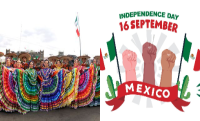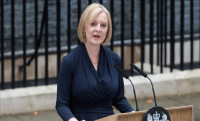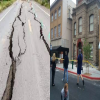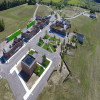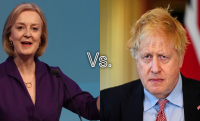Uttar Pradesh : The election narrative is changing
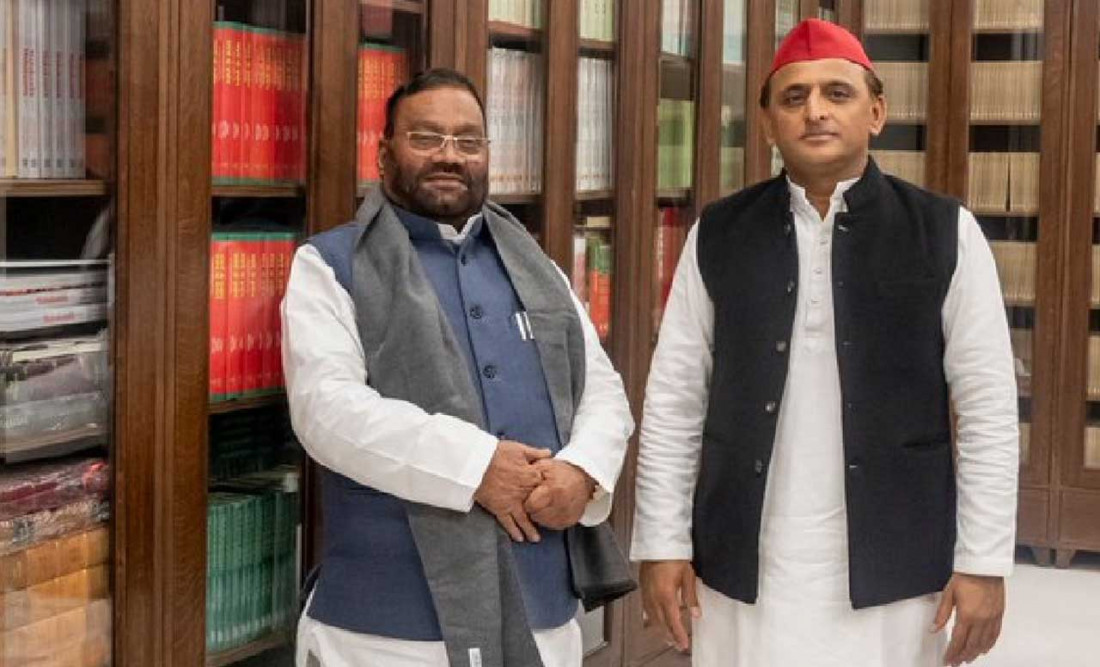
When Swami Prasad Maurya resigned from the post of cabinet minister in the Uttar Pradesh government, there was an earthquake in the politics of the state. The MLAs who resigned from BJP behind him are also from Dalit or OBC category. This is creating a narrative that backward and Dalits are mobilizing with the Samajwadi Party. Sayed Zaigum Mortaza is telling
What do Swami Prasad Maurya, Harendra Malik, Lalji Verma, Ramchal Rajbhar, Chaudhary Vijendra Singh, Rakesh Rathor, RK Chaudhary, Brajesh Prajapati, Roshan Lal Verma, Bhagwati Prasad Sagar, Dara Singh Chauhan and Madhuri Verma have in common? All these leaders belong to backward or downtrodden class and all of them are now riding on the cycle of Samajwadi Party. All these leaders have left BJP, Congress and Bahujan Samaj Party in the last one and a half year.
However, defection is not a new phenomenon in the politics of Uttar Pradesh. At the time of elections or just before that, many leaders have been searching for a new home in terms of new equations. But this time the new thing is that all the leaders representing the Dalit and backward classes are seen coming on one platform. At the same time, there is a large number of Brahmin and Muslim leaders among those who have defected, but the mobilization of backwards and Dalits in the politics of the state can turn the politics of the state in a new direction for a long time. In a state where people had accepted that politics is nothing but temples, mosques and religions, the movement of Dalits and backwards in a different direction can be a sign of change.
This is not the first time that Dalits and backward classes in the state have been vocal on the issue of neglect, oppression and representation of their respective classes and are looking for a platform from which to find solutions to their problems. The people of Uttar Pradesh have seen the effect of such mobilization in the 1990s. Even then BJP's cow, temple, Ganga, and Kamandal politics was broken only by the mobilization of backward and Dalits.
Though BJP kept the OBCs quiet for a long time with Kalyan Singh as the face, but as soon as the command of the state fell in the hands of people like Rajnath Singh and Ram Prakash Gupta, Dalits and backwards found new places for themselves. The Samajwadi Party and Bahujan Samaj Party got the benefit of this in turn.
In the last three-four years, two major incidents have taken place in the state's politics. One is the erosion of the Bahujan Samaj Party and the other is the campaign to sideline the Dalits and backwards in the BJP. About 19 percent of the total voters of Uttar Pradesh are Dalits and 45 percent are OBCs. Even if Muslims are excluded in OBC, there are about 60 percent voters who are in one place, then in any case, they are invincible. But it has been happening for a long time that there has been polarization among Dalits like Jatav versus non-Jatav and OBC versus Yadav versus non-Yadav, Jat versus non-Jat, Kurmi versus non-Kurmi and Gurjar versus non-Gurjar. . It is obvious that a national party gets the benefit of this, so the blame for this kind of squabble is also on this party.
However, this time in the Uttar Pradesh elections, there are three such issues which are related to Dalit, and OBC. First, the ever-increasing deficit in agriculture and allied work. The second is the injury to the traditional work of Dalits and backwards due to the politics of religion and the third is the caste oppression, police encounters, and a large number of Dalit-OBC people who have become victims of increasing crimes in the state. Leaders like Omprakash Rajbhar are raising the issue of oppression of Dalits and backwards in every meeting. SP National General Secretary Inderjit Saroj claims that OBCs and Dalits have not only been victims of persecution under the BJP rule but they have been deliberately sidelined. On the other hand, Rashtriya Lok Dal leader and National President of Gurjar Mahasabha, Dr. Yashveer Singh claims that almost everyone except one caste has been neglected in the politics of the state. They also say that the castes like Jats, Gujars, Kurmis, Saini, Lodhs, Yadavs in the state are associated with activities like farming, tenancy, animal husbandry. Due to the deteriorating conditions of agriculture, cows destroying the fields, bulls and the ban on the sale of cows and bulls due to the politics of religion, these classes have suffered the most financially. On the other hand, Indrajit Saroj believes that none of the backward and Dalit castes of the state can claim that it has benefited during the BJP rule. On the contrary, taking up the cases of harassment, police excesses and caste violence, apart from Muslims, most of the victims will come from these classes.
So is the mobilization of Dalits and backwards really happening in the politics of UP and if so, what is the impact of this on the election results of the state? When Swami Prasad Maurya resigned from the post of cabinet minister in the Uttar Pradesh government, there was an earthquake in the politics of the state. The MLAs who resigned from BJP behind him are also from Dalit or OBC category. This is creating a narrative that backward and Dalits are mobilizing with the Samajwadi Party. Earlier, Akhilesh Yadav's participation in the Bahujan rally in Lucknow and his speeches addressed to Ambedkarites besides socialists in his election rath yatra gave such indications.
It is certain that the Bahujan Samaj Party entering the election half-heartedly, Mayawati's distance from active politics and the party's leadership being in the hands of Satish Chandra Mishra has caused uneasiness among Dalits. Even the backward Yadavs, Jats and Gujjars of the state are looking for their interests by leaving the protest. In such a situation, the Samajwadi Party is an option for them, but as easy as it appears, the more difficult it is on the ground. The conflict between Dalit and OBC castes has a long history. If 60 percent of the voters of the state are to be invincible, then one has to first come out of personal selfishness and false caste conceit and it is certainly not easy. Secondly, the politics of religion, temple, and Ganga are not so weak yet that some politicians change their sides.
But yes, so much has happened that a narrative has been made about Dalit-OBC in the election. Even if it does not appear to be permanent or it may not last very long, still something is happening on an experimental basis. When such experiments take place, the direction and condition of the election also changes. It is also not right to postpone it by calling it such a defection. If such a one-way flow of OBC-Dalit leaders continues, it can prove to be not only a change of power in Uttar Pradesh but also a change in the direction of politics for a long time.

Manoj Bhiva
Manoj Bhiva is a dedicated writer who loves to write on any subject. Manoj Bhiva maintains a similar hold on politics, entertainment, health, abroad articles. Manoj Bhiva has total experience of 3 years in web and Social. Manoj Bhiva works as a writer in Wordict Post.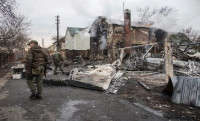
Russian Rocket 'Totally Destroys' Dorm, Unknown Amount Dead: Zelensky
Posted on 18th Aug 2022
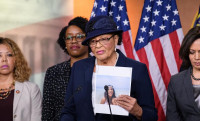
Congresswoman Alma Adams from North Carolina is found to have COVID-19
Posted on 15th Aug 2022
